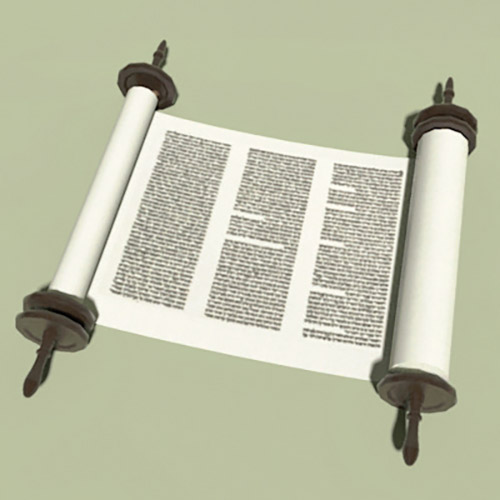
There was a debate in the beit midrash, the House of Study, in Babylonia, some 2,000 years ago. Which verse best summarizes the entire Torah? What is the most important pasuk, the verse that encompasses the total idea of Judaism?
Ben Zoma said, “I have found the verse that best summarizes the overall principle, the most important pasuk in the Torah that surpasses all the others, and that one is ‘Shema Yisrael Hashem Elokeinu Hashem Echad’” (Devarim 6:4), the acknowledgement that God is the King of the universe. The acceptance that He is our Master is primary, and only then can everything else follow.
Ben Nannas said, “I found a pasuk even greater than that, and it is, ‘You should love your neighbor as yourself.’” (Vayikra 19:18.) The entire purpose of man and God’s Torah is to do justice and love mercy.
Ben Azzai challenged them both and said, “This is the book of the generations of Adam.” (Bereishit 5:1) It is an even greater principle because it states clearly that all humanity is descended from Adam and emphasizes more strongly the brotherhood of man. As Rabbi Chaim Vital points out in Shaar HaKedusha, “Know that love of mankind applies even to non-Jews for it is incumbent for one to love all of mankind created in His Image.”
Finally, Shimon ben Pazzai said, “It is the pasuk commanding the daily sacrifices, ‘…. Prepare one sheep in the morning and a second sheep in the afternoon.’” (Bamidbar 28:4.) The mitzvah of offering twice-daily sacrifices is the most important verse.
Rabbi Ploni stood up on his feet and declared, “The law is according to Shimon ben Pazzai! Rabbi Ploni in the Talmud is always a symbol representing the anonymous and unanimous decision.
We can all understand why the earlier verses can compete for the test of the most important pasuk, the most all-encompassing verse, but why is this last one, of the twice-daily sacrifices, the ultimate winner?
Our daily prayers, morning and afternoon, are derived from the daily burnt offerings, the korban tamid sacrifice, that were performed in the Temple by the kohanim. The morning daily sacrifice represented dependence on God and trust that God will provide our needs throughout the day. The afternoon daily sacrifice represented our thanksgiving and gratitude to God that He has sustained us another day and for all He has given us.
It’s through our daily prayers that we acknowledge our dependence and reliance and trust in God and our gratitude to God for providing us with our sustenance. We offer sacrifice to God, even sacrifice of self, through self surrender. In the Amidah, the Shemone Esrei, we recite daily the middle 13 brachot are petition, requesting, even begging God to help us with our many needs. The final three brachot are thanksgiving.
The Vilna Gaon asked, “What is trust in God? Imagine a baby who after having just been nursed by its mother is completely satisfied and does not worry where the next meal will come from. That is trust,” he taught.
The Chasidic master Reb Avraham of Sadogur said of his brother Reb Dovid of Tchortkov, “When my brother says Tehillim, he says it with such devotion, that God says to him, ‘Dovid, you may have the entire world and do with it whatever you wish.’ But my brother is very trustworthy, and he returns the world to God exactly as he got it. Now, if God would make me that offer, I would make some changes.” The Rebbe of Tchortkov had such perfect faith in God’s supervision of the world, and so he believed that whatever God did, everything that happened in this world was right and good.
By Martin Polack
Martin Polack is a business analyst and involved in adult Jewish education.










